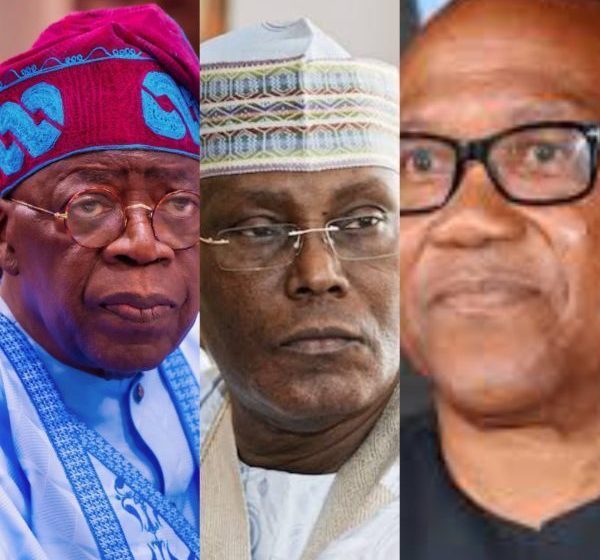ADC’s new coalition: A house divided before it is built?

ADC’s 2027 Coalition: Bold Move or Broken Alliance in the Making?
By Anjolaoluwa Ogunpitan
Nigeria’s political landscape is replete with alliances forged in the spirit of hope but ultimately undone by ego and competing interests. The African Democratic Congress (ADC)’s recently announced coalition for the 2027 General Election is being promoted as a bold initiative toward a unified opposition and a so-called “national rescue mission.”
Yet, even before the ink dries on their declarations of solidarity, structural fault lines are already apparent. This coalition risks becoming yet another ephemeral alliance, doomed by the personal ambitions of its leading figures—a house divided before it is even built.
A Coalition of Convenience?
Opposition leaders have presented this coalition as a platform to consolidate diverse political forces in order to challenge the ruling All Progressives Congress (APC), which is widely expected to nominate the incumbent president, Bola Ahmed Tinubu, in 2027. On the surface, the concept is commendable: Nigeria urgently requires a credible and unified opposition capable of representing the electorate and holding those in power accountable.
However, a deeper examination reveals that the coalition appears less a meeting of ideological alignment than a strategic marriage of convenience. Many of its prominent figures—such as Atiku Abubakar, Peter Obi, and Rotimi Amaechi—have a documented history of party defections, factional disputes, and the prioritization of personal ambition over consistent party loyalty or ideological clarity. Their sudden convergence seems more like an electoral calculation than a genuine commitment to shared objectives.
The Gladiators’ Game
Nigerian politics has long been characterized by what can only be described as “political gladiators”—powerful individuals whose personal ambitions frequently eclipse collective interests. These political actors often treat parties not as vehicles for advancing ideology or public service, but as personal fiefdoms.
The ADC’s new coalition includes precisely such figures, each commanding their own networks of loyalists with entrenched expectations of reward and influence. Absent a transparent and enforceable mechanism for resolving internal disputes and distributing power equitably, these personalities will inevitably clash.
Historical precedent is instructive here. Grand coalitions have often crumbled when faced with the thorny question of candidate selection—a problem that is already generating internal friction within the ADC, which has yet to zone its presidential ticket to any region. This challenge will likely extend to decisions over governorship tickets, control of state-level party structures, and other spoils of political victory. Unless the ADC learns from these historical lessons, the coalition may disintegrate at its first serious test.
READ ALSO
Labour Party issues Peter Obi ultimatum after joining ADC coalition
Why ADC’s coalition against APC and Tinubu may crumble before 2027
David Mark, Obi, Atiku, El-Rufai — meet members of ADC’s new coalition against Tinubu
Who is David Mark? ADC’s interim chairman leading coalition against Tinubu
Opposition coalition adopts ADC for 2027 elections….what you need to know
Why Nigerians should reject ADC coalition, support Tinubu for second term – Omokri
Historical Parallels
This would not be the first time the ADC has failed to maintain internal cohesion. In 2019, it was positioned as a leading opposition platform following the endorsement of former president Olusegun Obasanjo, only to see its prospects unravel amid internal divisions and defections. More recent factional splits have reinforced the pattern: while declarations of unity are easily made at press conferences, they are difficult to sustain in practice.
Even the major coalition that achieved electoral success—the APC in 2015—managed this only by temporarily masking deep internal rifts that would later resurface in prolonged intra-party conflicts and policy paralysis. If the ADC’s coalition does not prioritize genuine internal democracy and establish clear, enforceable rules for resolving disagreements, it may not even replicate that limited success.
Consequences for the Electorate
The stakes of this political drama are not abstract. Nigerian voters deserve better than empty, opportunistic alliances. Every time an opposition coalition collapses, it undermines public trust in the viability of alternatives to the ruling party. It entrenches a pervasive cynicism that all politicians are fundamentally the same—motivated by personal enrichment rather than public service.
Furthermore, failed coalitions waste valuable time and resources that could be better used to build strong grassroots networks, craft robust policy platforms, and engage in sustained voter education. Instead of advancing Nigeria’s democratic development, these failures distract from substantive solutions to the country’s pressing problems.
Conclusion
The ADC’s new coalition purports to offer hope for Nigeria’s democratic future. But hope alone is insufficient. Without honesty, discipline, and a willingness to subordinate personal ambition to the national interest, this alliance risks becoming just another cautionary tale—a house divided before it is even built.




